
 Nick Pelios
Freediver, Creator
Nick Pelios
Freediver, Creator

 Nick Pelios
Freediver, Creator
Nick Pelios
Freediver, Creator
I was 18 when I first went scuba diving. Somewhere off the coast of Cyprus, surrounded by that unnervingly calm Mediterranean blue, a dive instructor strapped a heavy tank to my back, plopped a regulator into my mouth, and gave me a thumbs up as we sank into the sea like stones.
I remember thinking: This is it. I’m going to become a diver. One of those people who post GoPro selfies with turtles and call the ocean home. But something about it felt wrong. Not bad—just wrong. Like wearing someone else’s shoes. A bit too stiff. A bit too loud. A bit too... synthetic. It wasn’t until years later that I discovered freediving. And suddenly, the sea made sense.
Scuba diving is like bringing your living room underwater. You’ve got your gadgets, your gauges, your redundancies. You breathe compressed air through a contraption strapped to your body. You manage your buoyancy with buttons. It’s an engineered experience. It’s safe, structured, and full of procedures.
Freediving, on the other hand, strips all that away. It’s you, a pair of fins, and a single breath. There’s no noise except your own heartbeat. No bubbles clouding your vision. No gear buzzing or clicking or reminding you of its presence. Just silence. Stillness. Immersion. Scuba lets you observe the ocean. Freediving lets you become part of it.
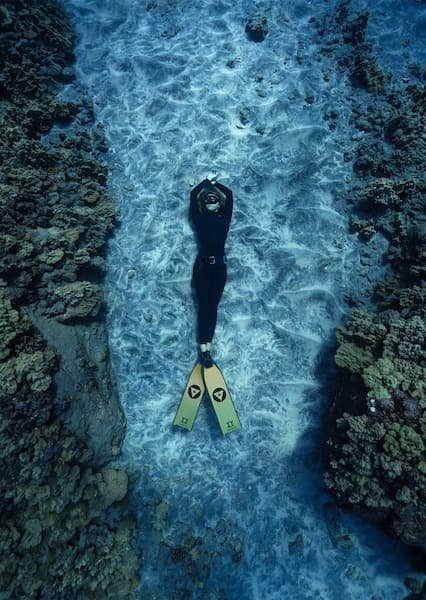
People love to compare stats. How deep can you go? How long can you stay down? But the real difference between freediving and scuba isn’t just about the numbers. It’s about the experience.
With scuba, depth is limited by decompression limits, air supply, and safety protocols. Sure, tech divers can go deep. But it comes with long deco stops, complex gas mixtures, and a bank account that takes a beating.
Freedivers dive deep too—world records go beyond 100 meters—but on a single breath. And no, they’re not reckless. They train meticulously. They study physiology. They stretch. Meditate. They go deep not just into the water, but into themselves. The deeper you go, the quieter it gets. That’s the real depth.
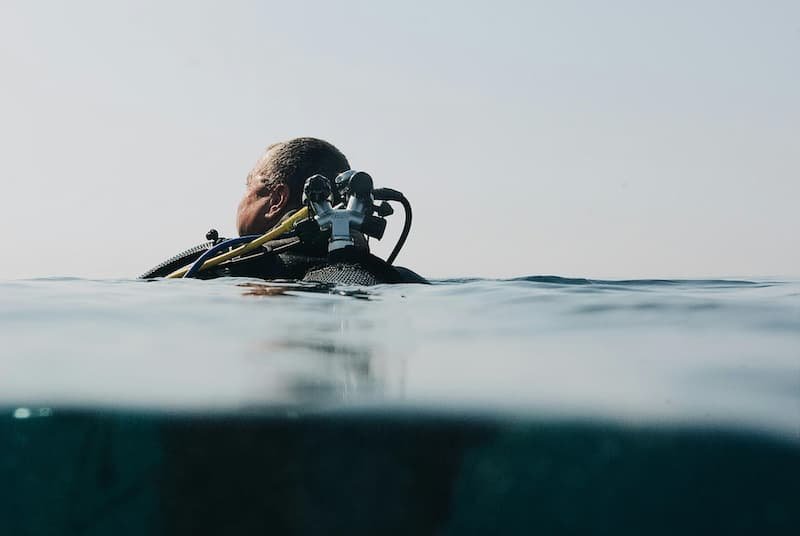
Scuba gear is impressive. Regulators, tanks, buoyancy compensators, dive computers, octopuses, weights. There’s a tool for every need. But with all that, comes complexity. More gear means more things to maintain, more things that can break, more time spent checking, adjusting, and calibrating.
Freedivers keep it lean. Mask, snorkel, wetsuit, fins. Maybe a weight belt. That’s it. Travel becomes simpler. Set-up is faster. And let’s face it—there’s something freeing about being able to grab your gear and slip into the sea in less than five minutes.
Breathing on scuba is automated. You breathe in. The regulator gives you air. You breathe out. Bubbles rise. You don’t think about it much.
But in freediving, breathing is everything. It’s intentional. Before a dive, you slow your breath. You soften your body. You prepare. The inhale isn’t just to fill your lungs—it’s to calm your mind.
After surfacing, that first breath feels like life itself. It is life itself. Every freediver knows that feeling. That post-dive inhale, shaky and sweet, is the reward for surrendering to the deep and returning.
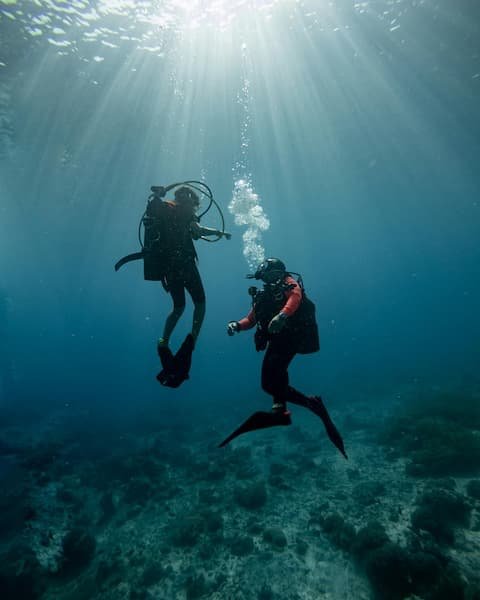
Ever noticed how noisy scuba is? Not just the hiss of air and the clink of gear, but the way it creates separation. Bubbles obscure your view. Regulators distort your voice. You become an outsider looking in.
Freediving is silent. You glide. You slip. You merge. Fish don’t scatter as much. Dolphins sometimes approach. You’re not crashing the party; you’re already on the guest list.
Let’s not romanticize it: both freediving and scuba carry risk. Scuba divers face nitrogen narcosis, decompression sickness, equipment failure. Freedivers risk shallow water blackout, barotrauma, and hypoxia.
But here’s the thing: both sports are safe when practiced properly. It’s not about the activity; it’s about the attitude. Are you trained? Are you following best practices? Are you diving within your limits?
The ocean doesn’t discriminate. It demands respect in every form.
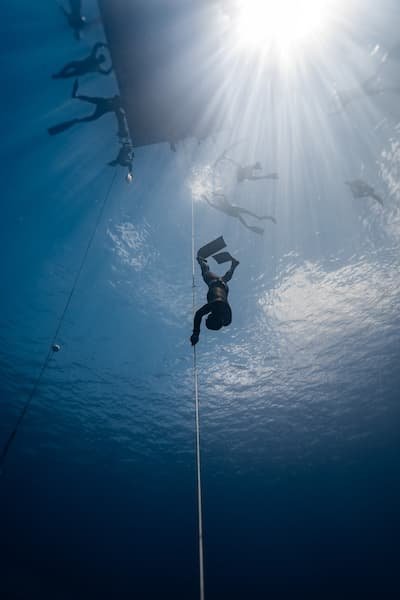
After a scuba dive, you often feel satisfied. Tired, maybe. Hungry. You log your time and depth. Rinse your gear. It’s transactional. You had an adventure.
After a freedive, you feel transformed. There’s a stillness that lingers. A clarity. It’s not just a sport. It’s a state of being. You touched something ancient, and it touched you back.
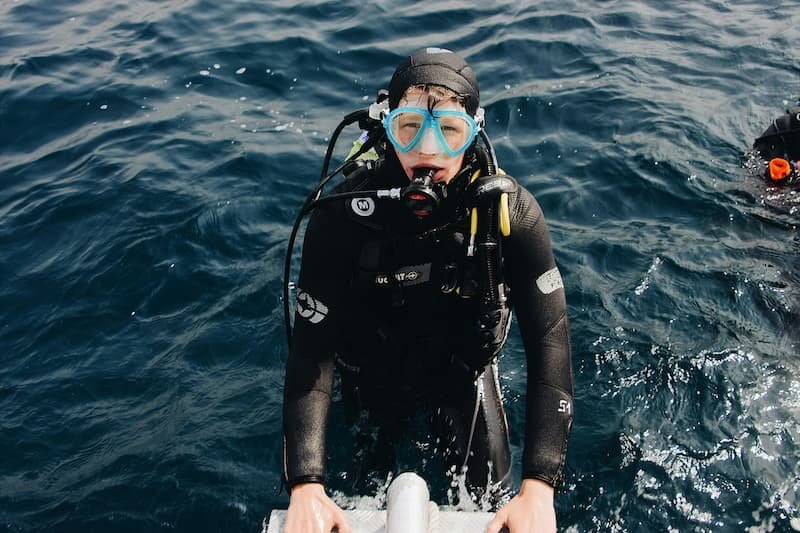
That’s the wrong question. Better for what?
Scuba is for exploring wrecks, staying down longer, documenting ecosystems. It’s brilliant for science, research, and access.
Freediving is for connection. With nature. With yourself. With silence.
I still scuba now and then. There are places it takes me that I can’t reach on a breath-hold. But when I think of diving in the purest sense—of feeling small and infinite, of meeting the sea without barriers—it’s always freediving. Always.